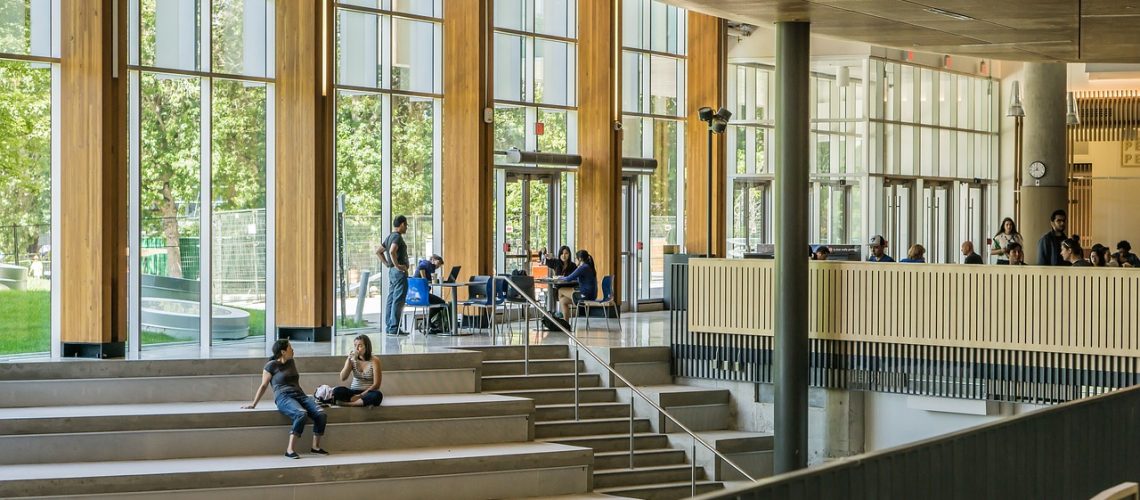What to do if charged
Being charged and convicted of a student conduct violation as a college or university student can have far-reaching consequences that extend beyond the classroom. Your academic and personal future may hang in the balance. If you find yourself in this situation, it’s crucial to understand the ins and outs of student disciplinary hearings. At Arora Law, we have a team of experienced attorneys well-versed in representing students in these complex matters. Contact us today for a free consultation, and let us protect your rights and future.
Understanding Student Disciplinary Hearings
What is a School Disciplinary Hearing?
A school disciplinary hearing is a formal process conducted by educational institutions to address alleged violations of their code of conduct. These hearings are designed to determine whether a college or university student has violated school policies and to impose appropriate sanctions if a violation is confirmed.
The objective of this hearing extends beyond evaluating the evidence supporting the allegations against the student; it also serves to ensure that the student is afforded the procedural safeguards mandated by the law.
Common Charges Brought Against Students
College or university students can face a wide range of charges in disciplinary hearings, including:
- Code of Conduct Violations: Disruptive behavior, harassment, or bullying that breaches the school’s code of conduct.
- Drug or Alcohol Offenses: Possession or use of controlled substances or underage drinking on school premises.
- Property Damage (Vandalism): Willful damage to school property or the property of others.
- Theft Crimes and Shoplifting: Stealing or shoplifting items on school grounds or from fellow students.
- Criminal Trespassing: Unauthorized entry or remaining on school property or other premises.
- Violence or Assault: Physical altercations, threats, or aggressive behavior towards fellow students or staff.
- Sexual Misconduct: Violations of policies related to sexual harassment, assault, or consent.
- Stalking: Unwanted and persistent surveillance, harassment, or intimidation of others.
Why It’s Important to Hire an Attorney for Student Violation Hearings
Both the accused student and the accuser maintain the right to select an attorney of their choice. The school does not appoint or offer free legal representation. Your chosen attorney can accompany you during meetings and proceedings throughout the investigation and resolution phases to offer guidance and counsel. Although you must respond to questions personally, your attorney can provide guidance and support, helping you navigate the process for the optimal outcome.
Navigating a student conduct hearing can be challenging, and the consequences can be severe. Hiring an attorney with experience in these matters is crucial for several reasons:
- Protecting Your Rights: An attorney can ensure that your rights are upheld throughout the hearing process.
- Building a Strong Defense: Attorneys can gather evidence, interview witnesses, and construct a compelling defense on your behalf.
- Negotiating Outcomes: Attorneys can negotiate with school administrators to seek reduced charges or penalties.
- Preserving Your Record: Avoiding a disciplinary record can be vital for your academic and professional future.
Differences Between a Student Violation Hearing and a Criminal Proceeding
It’s important to note that a student disciplinary hearing is distinct from a criminal proceeding. While both may involve similar legal processes, the goals and procedures are different:
- Standard of Proof: In criminal cases, the prosecution needs to show guilt with very strong evidence, going beyond any reasonable doubt. In student hearings, they typically use a less strict standard called “preponderance of evidence,” which means there is more evidence supporting the claim than against it. To find you responsible for a student conduct violation, the disciplinary panel just needs to see that—after looking at all the information together—it seems more likely than not that you did what you’re accused of.
- Consequences: Criminal convictions can lead to fines, probation, or incarceration, while student conduct hearings result in school-specific sanctions like suspension or expulsion.
- Legal Rights: In criminal proceedings, defendants have constitutional rights, including the right to an attorney. In student hearings, the extent of these rights may vary.
What to Expect from a Formal Hearing
A formal student disciplinary hearing typically involves the following steps:
- Notification: You will be notified of the charges against you and the date, time, and location of the hearing.
- Presentation of Evidence: Both sides present evidence, including witness testimony and documents.
- Cross-examination: You have the opportunity to question witnesses and challenge evidence presented against you.
- Decision: The hearing panel or administrator will make a decision based on the evidence and testimony.
Possible Consequences of a Confirmed Violation
If found responsible for a violation, the consequences can vary widely, including:
- Academic Penalties: Such as failing grades or academic probation.
- Disciplinary Sanctions: Such as community service, suspension, or expulsion.
- Impact on Future: A disciplinary record can affect future academic and professional opportunities.
Student disciplinary hearings in Georgia are a critical aspect of maintaining a safe and conducive learning environment. If you’re facing such charges, your academic career and prospects may be at great risk, so you mustn’t navigate the process alone. At Arora Law, we understand the complexities of these hearings and are dedicated to defending your rights and future. Contact us today, and let us guide you through this challenging time. Your academic and personal future are worth protecting.










